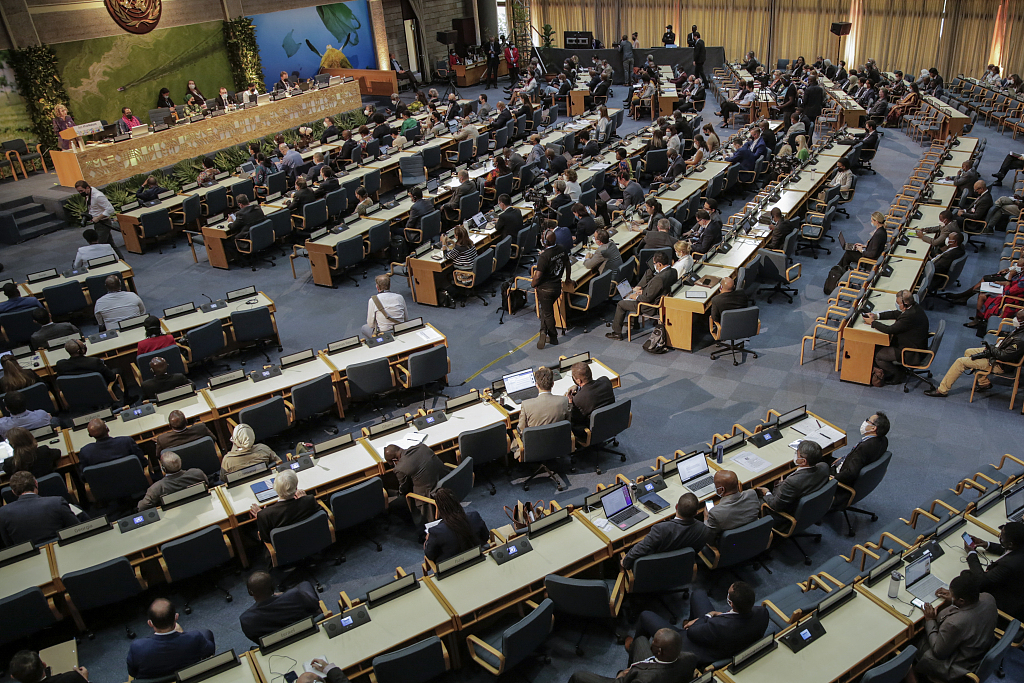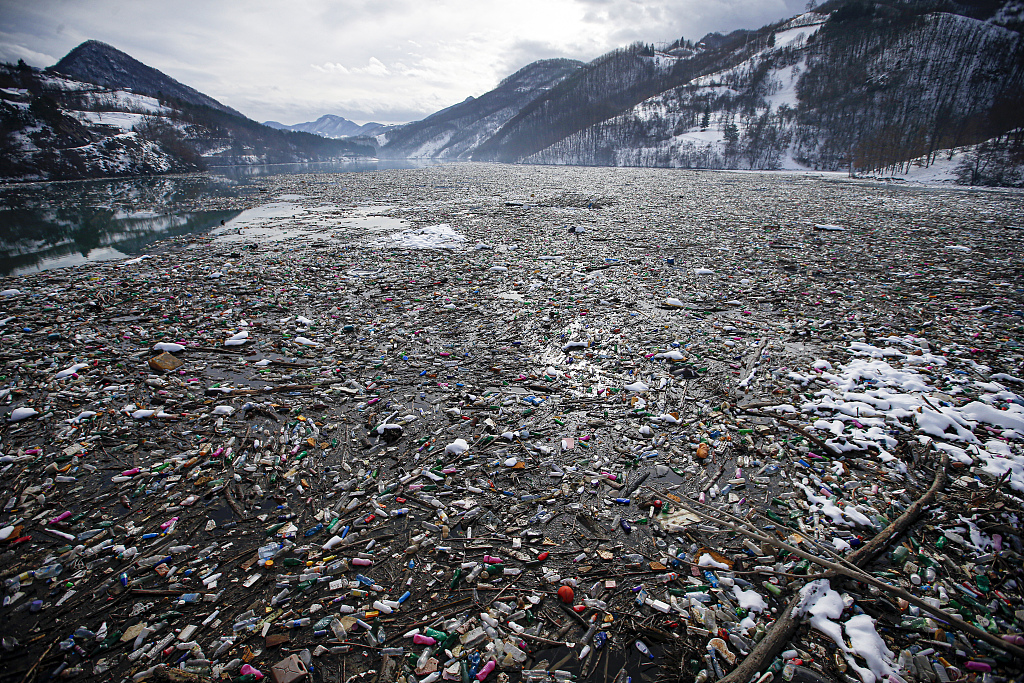Delgegates agreed on a resolution calling for a legally binding global treaty to end plastic pollution by 2024 at the resumed fifth session of the UN Environment Assembly (UNEA-5).
Heads of state, ministers of environment and other representatives from 175 nations endorsed this landmark agreement that addresses the full lifecycle of plastics from source to sea.

Delegates gather to discuss a binding international framework to address the growing problem of plastic waste in the world's oceans, rivers and landscape at the United Nations Environment Assembly in Nairobi, Kenya, March 2, 2022. /VCG
Delegates gather to discuss a binding international framework to address the growing problem of plastic waste in the world's oceans, rivers and landscape at the United Nations Environment Assembly in Nairobi, Kenya, March 2, 2022. /VCG
UN member states will be mandated to address the full lifecycle of plastics, the design of reusable and recyclable products and materials even as they foster technology transfer and knowledge sharing to boost adoption of eco-friendly alternatives.
"Plastic pollution has grown into an epidemic. With today's resolution we are officially on track for a cure," said Espen Barth Eide, the outgoing president of UNEA-5 and Norway's minister for Climate and Environment.

Plastic bottles and other garbage float in Potpecko Lake near Priboj, in southwest Serbia, January 22, 2021. /VCG
Plastic bottles and other garbage float in Potpecko Lake near Priboj, in southwest Serbia, January 22, 2021. /VCG
According to statistics from the United Nations Environment Programme (UNEP), plastic production soared from 2 million tonnes in 1950 to 348 million tonnes in 2017. What's more, according to the International Union for Conversation of Nature, at least 14 million tonnes of plastic end up in the ocean every year, and plastic makes up 80 percent of all marine debris found from surface waters to deep-sea sediments.
The shift to a circular economy will reduce plastics entering oceans by over 80 percent by 2040, reduce virgin plastic production by 55 percent by 2040, says the UNEP.
Additionally, eliminating plastics will reduce greenhouse gas emissions by 25 percent.
(Cover image via VCG)
(If you want to contribute and have specific expertise, please contact us at nature@cgtn.com.)

